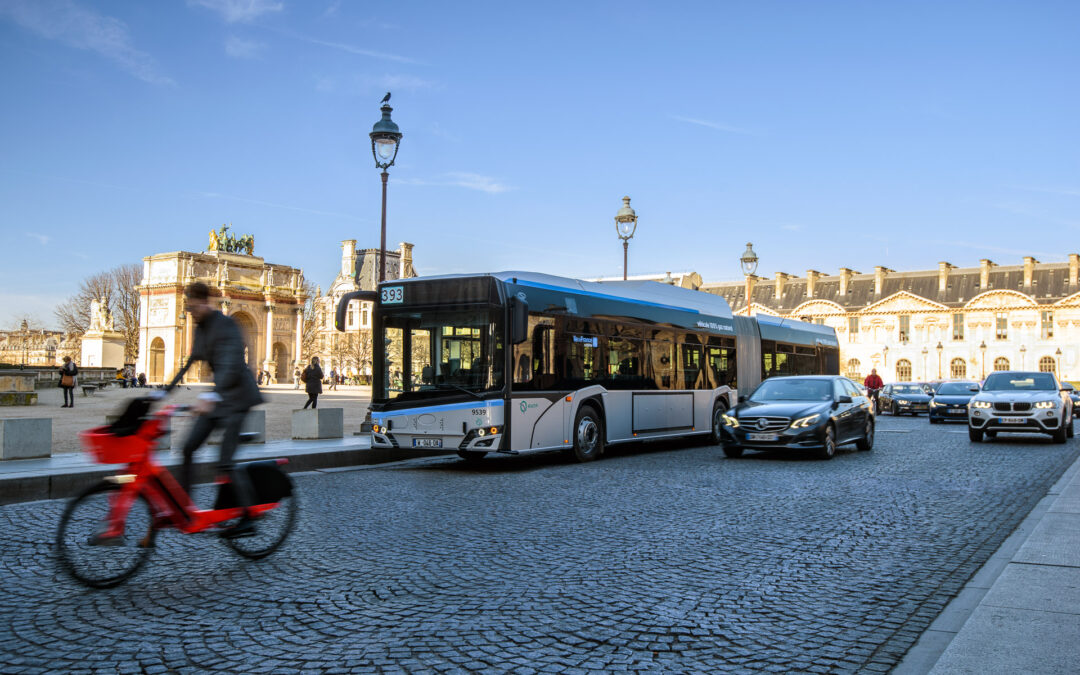Poland has become the European Union’s largest exporter of electric buses, after it saw sales rise 50% last year, leapfrogging Belgium into first place.
Poland sold electric buses worth €213.4 million abroad between January and November 2020, according to official data from Statistics Poland (GUS), a government agency. That was a 50.7% increase relative to the same period a year earlier, according to analysis by the Polish Economic Institute (PIE).
Poland’s share of electric bus exports in the EU has increased from 10% in 2017 to 46% in the freshest data for most of 2020. That puts it ahead of Belgium (36%), the Czech Republic (7%), Germany (4%) and the Netherlands (2%).
Pandemia COVID-19 pokazała, że elektromobilność to nie chwilowy trend. Według @GUS_STAT w okresie I-XI 2020 r. polscy producenci dostarczyli do zagranicznych odbiorców autobusy elektryczne o wartości 213,4 mln EUR, co oznacza wzrost o 50,7 proc. licząc rok do roku. pic.twitter.com/WwsL4r8lz4
— Polski Instytut Ekonomiczny (@PIE_NET_PL) February 4, 2021
Poland’s buses were mostly sold to Germany (36.9%) and Italy (35.2%), according to PIE. Other exports went to Norway, Romania, Luxembourg, France and Sweden.
In 2019, Solaris Bus & Coach – a Polish firm based near Poznań that was purchased by Spain’s Grupo CAF three years ago – become Europe’s biggest single manufacturer of electric buses. The two other Polish-based producers are Volvo in Wrocław and, as of October 2020, MAN Truck & Bus in Starachowice.
The EU’s increased focus on sustainable energy and green transport has helped Poland’s electric vehicle exports. According to forecasts by BloombergNEF, the share of electric vehicles among public buses worldwide will reach 58% by 2030.
In coming years, another category of green transport expected to gain prominence will be vehicles running on hydrogen. Solaris has already received 57 orders for its first hydrogen model – the Urbino 12 hydrogen “emission-free bus” – which premiered in June 2019, reports transport-publiczny.pl.
Poland’s government has been championing electric transport in recent years, with the aim of making the country an e-mobility powerhouse. But its efforts to create a domestic electric car brand and encourage more such vehicles on Poland’s own roads have faced difficulties.
These ambitions have already begun to be scaled back, amid low take-up of a scheme to subsidise the cost of purchasing electric vehicles and delays in plans for a Polish-made electric car.
Last year, the government created a special fund of 60 million zloty (€13.4 million) to help rural communities purchase electric buses and create e-mobility infrastructure.
Main image credit: Solaris Bus & Coach/Facebook

Maria Wilczek is deputy editor of Notes from Poland. She is a regular writer for The Times, The Economist and Al Jazeera English, and has also featured in Foreign Policy, Politico Europe, The Spectator and Gazeta Wyborcza.




















